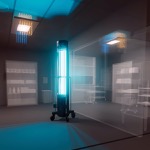By Marcus A. Banks
A computer-assisted workflow helps pharmacists deprescribe medications that patients no longer need after leaving the ICU, researchers reported in the Journal of the American College of Clinical Pharmacy (2023 July 21. doi:10.1002/jac5.1861).

Acid-suppressing medications such as proton pump inhibitors or histamine-2 receptor blockers are often prescribed in ICUs to reduce the risk for stress ulcer–related bleeding. But many patients continue these medications after they have stabilized and left the ICU.
“These medications have been linked to a number of complications, including infections and nutrient deficiencies, if they are used too long,” said Lauren Kimmons, PharmD, a clinical pharmacy specialist in critical care at Methodist University Hospital, in Memphis, Tenn., and co-author of the new findings. To address this problem, she and her team integrated pharmacist oversight into transitions of care from the ICU into the general hospital.
“Fortunately, we have great trust from our hospital providers, and our scope of practice allows pharmacists to modify or discontinue medications if deemed appropriate based on a patient’s change in acuity,” Dr. Kimmons said.
Methodist Le Bonheur Healthcare’s electronic health record (EHR) system prompts pharmacists to evaluate a patient’s drug regimen after they have been cleared to leave the ICU. Using prespecified criteria, a pharmacist can maintain a medication as is, modify the formulation or discontinue the medication.
Methodist Le Bonheur’s transitions of care program launched at the end of 2019 and included a new note informing providers that acid suppressants will be automatically discontinued upon ICU discharge if the medications had only been prescribed to prevent ICU ulcers and bleeding.
Dr. Kimmons and her colleagues compared 150 patients treated before the transitions of care program commenced with another 150 patients treated during the program. After the program’s implementation, the investigators observed, the number of acid suppressant medications continued at ICU discharge dropped significantly (famotidine orders declined from 90%-54%, P=0.005; pantoprazole [Protonix, Pfizer] orders declined from 94.5%-20%, P<0.001).
In addition to acid suppressants, ICU patients often receive antipsychotic medications to control delirium or agitation that may be continued even after the patient has been stabilized. These medications come with risks that range from mild inconveniences such as dry mouth to life-threatening conditions like myocarditis (World Psychiatry 2018;17[3]:341-356).
The Methodist Le Bonheur transitions of care program significantly reduced the number of patients who received one such drug, quetiapine, after ICU discharge (quetiapine orders dropped from 90% pre-implementation to 28.6% post-implementation; P=0.005). The program also enabled pharmacists to discontinue sedatives and IV infusions that were no longer needed.
“This program is efficient,” Dr. Kimmons said. While there was some up-front work to code criteria for medication de-escalation into the EHR and secure pharmacist authority to manage these medication orders, she noted, these tasks fit easily into the pharmacists’ workflow.
“Every pharmacist has full authority within our scope of practice, so we can initiate medication changes any time of day. That’s what makes this program work,” Dr. Kimmons said.
Dr. Kimmons reported no relevant financial disclosures.




